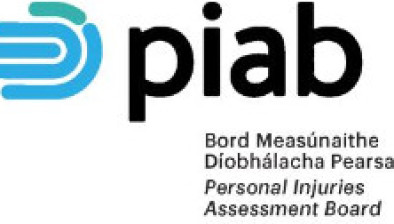Court of Appeal: Personal injuries award reduced from nearly €125k to less than €66k on appeal

The Court of Appeal has substituted an award of the High Court for personal injuries sustained by a cyclist involved in a road traffic accident with a bus.

About this case:
- Citation:[2023] IECA 232
- Judgment:
- Court:Court of Appeal
- Judge:Mr Justice Seamus Noonan
Delivering judgment for the Court of Appeal, Mr Justice Seamus Noonan found that the High Court had largely ignored the evidence tendered on behalf of the defendants, finding that the trial judge had “latched on” to certain evidence which he appeared to have misinterpreted in favour of the plaintiff.
Background
The plaintiff was cycling to work along the quays in Dublin on 8th June 2016 when he was knocked off his bicycle by a bus which passed by too close to him. The plaintiff fell from his bicycle onto the footpath on his left hand side, and following a discussion with the bus driver, he reported the accident to a garda that he saw in a shop nearby.
The plaintiff continued to work but left shortly after to attend the Mater Rapid Injury Clinic in Smithfield. Investigations revealed he had a fracture of his left elbow, an ankle sprain, and various cuts and bruises.
The plaintiff then visited the Orthopaedic Unit in the Mater Hospital, and an X-ray confirmed that he also had three sprained fingers. He said that throughout the summer of 2016, he had broken sleep and pains in his back, neck and ankle. He underwent extensive investigation and treatment for his injuries involving multiple disciplines, including over 100 sessions of physiotherapy and about 45 sessions with a chiropractor. He continued to complain of widespread body pain for several years after the accident.
The medical evidence for the plaintiff indicated that the plaintiff’s injuries were reasonably mild and that his complaints of widespread body pain were consistent, although there did not appear to be any musculoskeletal source for his pain at four years post-accident.
The medical evidence for the defence also contended that the plaintiff’s injuries were mild, but suggested that he had exaggerated his symptoms, with the absence of muscle wasting indicating that there was no part of the plaintiff’s body which was not being moved as a consequence of injury.
The High Court
The High Court, giving an ex tempore judgment, noted that all the doctors conceded that the plaintiff’s complaints were “way out of proportion to his physical injuries”, but found “by a short lead” that the plaintiff’s medical evidence won.
Finding that the plaintiff had gathered items of special damage at an “unprecedented level”, the trial judge said that the plaintiff “struck me as someone who is [recte. has] let this entire accident come down at him like a ton of bricks”.
The trial judge further noted in respect of the plaintiff’s symptoms that “…I believe he believes that he is suffering from them and I think he is suffering from them…Mr. Gopal is of the opinion that the plaintiff is suffering with a consistent and non-specific chronic widespread body pain, following a road traffic accident. There is no other identifiable cause for this. I do not accept that the plaintiff is exaggerating or making it up and the only other identifiable cause, on the evidence, is the road traffic accident…”
The High Court awarded €100,000 in general damages, and €24,795.51 special damages.
The defendants appealed on the basis that there was no evidence to support the conclusion that there was a causative link between the plaintiff’s medically unexplained pain and the accident. The defendants also contended the trial judge erred in interpreting the medical evidence, and that the awards of general and special damages were excessive.
The Court of Appeal
Mr Justice Noonan began with a consideration of how the court should assess personal injuries complaints which are unsupported by medical evidence, observing that, “…while the vast majority of plaintiffs are honest and truthful about their complaints, that is not invariably the case…Some will be of a stoic disposition and wish to be seen not to complain unduly. Some…may complain bitterly about things that most would take in their stride. But the law must treat everyone fairly and equally. Fairness means being consistent in one’s approach to particular injuries, even if…they may affect different people differently.”
Turning to the case before him, Mr Justice Noonan found that there had been somewhat of a mischaracterisation of the medical evidence by the trial judge, and that it was significant that no evidence was led from a clinical psychologist despite the fact that the plaintiff had been referred to one.
Mr Justice Noonan opined that the trial judge had erred in finding that there was a conflict in the medical evidence, overlooking the fact that the doctors had largely agreed that there was no organic source of the plaintiff’s pain. The judge also commented that the evidence given in relation to findings consistent with malingering on part of the plaintiff was mostly ignored by the trial judge.
Considering the issue of general damages, the court agreed that there was merit in the defendants’ contention that the judge himself sought to diagnose the plaintiff as suffering from a pain syndrome in the absence of any evidence. Finding that the plaintiff’s elbow injury was in the “minor” category in the Book of Quantum, the court reduced the general damages to €55,000.
Finding that the trial judge did not engage with the plaintiff’s claims for special damages, and instead simply awarded the claims for diagnostic imaging and two-thirds of everything else, Mr Justice Noonan determined that this was an erroneous approach. The court proceeded to award any appropriately recoverable claims up to 7 June 2018, which amounted to €10,688.10.
Conclusion
Mr Justice Noonan allowed the appeal of the defendants and substituted the award of the High Court with a reduced award of €65,688.10, and directed submissions as to the issue of costs.
O’ Daly v. Bus Éireann – Irish Bus & Anor [2023] IECA 232








